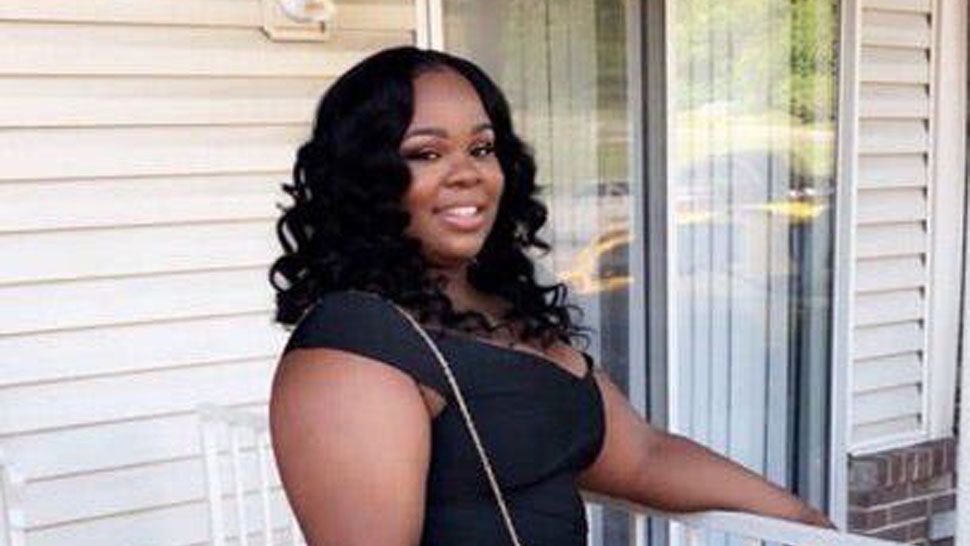LOUISVILLE, Ky. — Roughly 15 hours of recorded grand jury proceedings in the Breonna Taylor investigation were made public Friday, giving the public a rare look at a typically secretive process and revealing new information about how Attorney General Daniel Cameron conducted his probe into the 26-year-old's March 13 killing.
The recordings cover proceedings conducted on Sept. 23-25. On the final day, the grand jury announced that one of the three officers involved in Taylor’s shooting — now-former Louisville Detective Brett Hankison — would be charged, and only for shots he fired into a neighboring apartment. That decision touched off several days of tense protests in Louisville.
On Monday, Judge Ann Bailey Smith ordered Cameron to release the recordings. The order came at Hankison’s arraignment, where he pleaded not guilty to three counties of wanton endangerment. Smith gave a noon Wednesday deadline for the release of the recordings, but moved it back two days after Cameron sought a weeklong extension to make redactions. A statement from Cameron’s office Friday said just under four minutes of material was redacted from the tapes, including addresses, phone numbers, and names of minors.
“I’m confident that once the public listens to the recordings, they will see that our team presented a thorough case to the Jefferson County Grand Jury,” Cameron said in the statement. “Our presentation followed the facts and the evidence, and the Grand Jury was given a complete picture of the events surrounding Ms. Taylor’s death on March 13th.”
The recordings only cover the portions of the hearings that contain evidence, Cameron’s office said. That means juror deliberations, along with statements and recommendations from the prosecutor, were omitted.
Information on Cameron's recommendations had been highly sought-after by attorneys for Taylor’s family, who criticized Cameron at a press conference last week because they believed he did recommend charges directly related to Taylor’s killing. The Attorney General seemed to confirm that Monday in a statement that said “the only charge recommended was wanton endangerment."
What the recordings do include are hours of other recordings that were played for the grand jurors, followed by their questions about what they heard. Among the recordings played were interviews with Sgt. Jonathon Mattingly and Detective Myles Cosgrove, the two officers other than Hankison who fired their guns at Taylor's apartment; interviews with Kenneth Walker, Taylor’s boyfriend, who shot his gun at police, believeing them to be intruders; witnesses who were in the apartment complex during the raid; and others officer who responded to the scene after the shooting.
The recordings touch on some of the most talked-about issues in the case, including whether LMPD officers announced themselves prior to entering the apartment. Mattingly said officers knocked and announced themselves six or seven times. In an interview conducted with the LMPD’s Public Integrity Unit, Cosgrove said that even though a no-knock warrant had been obtained, officers were told to “use our maturity as investigators to get in this house.” Detective Michael Nobles, who was on the team serving the warrant, said he knocked for one or two minutes before entering.
But jurors also heard from a detective who described interviews with several of Taylor’s neighbors who said they didn’t hear any knocking. They also heard interviews with Walker that were conducted just hours after the incident. He said he never heard the police announce themselves.
“If I would have heard at the door that it was the police, it changes the whole situation. There’s nothing for us to be scared of,” Walker said. “The only reason I had the gun out is we didn’t know who it was.”
You can listen to the recordings yourself here and follow our complete coverage of the Breonna Taylor case here.



